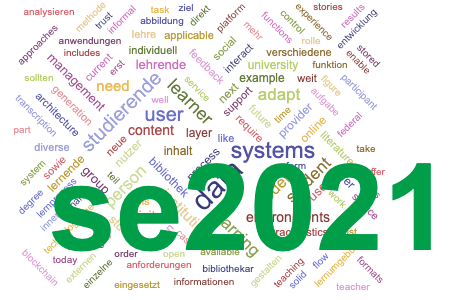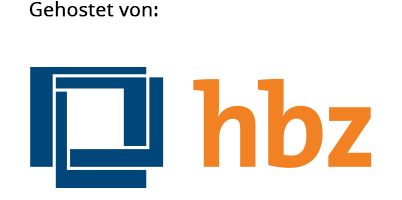Special Edition 2021

- Summary
- What would the Learning Management System of the future look like? In August 2020, 88 participants from Austria, Germany and Switzerland approached this question during a workshop on the “Next Generation LMS”. As you can see from this special issue, maybe there is no such thing, at least not in the sense of the traditional monolithic systems that we are using today.
- Zusammenfassung
- Wie sähe das Learning Management System der Zukunft aus? Im August 2020 gingen 88 Teilnehmer aus Österreich, Deutschland und der Schweiz dieser Frage im Rahmen eines Workshops zum Thema "Next Generation LMS” nach. Wie Sie aus dieser Ausgabe ersehen können, gibt es so etwas allerdings vielleicht gar nicht, zumindest nicht im Sinne der traditionellen monolithischen Systeme, die wir heute einsetzen.
Editorial
Carrying out a workshop during COVID-19 presented both challenges and opportunities: challenges, since like so many events in higher education, we had to completely rely on electronic collaboration tools (in this case Zoom and Miro), and opportunities, since we were already thinking “outside the box” – besides, it probably would have required a lot more logistics and advance notice to bring together such an illustrious crowd of e-learning specialists from three countries any other way. Some of their contributions are collected in this special issue of eleed.
Learning Management Systems have been around for three decades, but their basic design has not changed: they provide web-based tools for distributing content, making announcements, supporting discussions, grading, and assessments like homework and quizzes. In his contribution “Learning in 2040 – A journey to the future of tertiary learning,” Thomas Korner is discussing some of the emerging functionalities and trends which are not or only insufficiently supported by the current systems: study advisory BOTs, micro masters and nano degrees, ubiquitous individualized learning, learning groups, and the enabling blockchain technology.
The purpose of advisory BOTs, or AI-agents, would be the personalization of adaptive learning environments. The expected functionality and benefits of such systems are discussed in “Anforderungen an ein Next Generation LMS zur Unterstützung von Personalisierung aus bildungswissenschaftlicher Perspektive” by Claudia de Witt and Heike Karolyi, while the architectural foundations are described in detail in “From Diversity to adaptive Personalization: The Next Generation Learning Management System as Adaptive Learning Environment” by Niels Seidel, Jörg M. Haake, and Marc Burchart.
Micro masters and nano degrees (rather than comprehensive, monolithic degree programs) are oftentimes reflections of particular competencies. Learners may become increasingly self-directed in designing their own course of study and acquiring these competencies in social learning environments, which Elisabeth Kaliva and Susanne Glaeser explore in “Kompetenzorientiertes Lernen in der Post-LMS-Ära.”
Ubiquitous individualized learning can happen in local contexts, even outdoors, right there, right then. In their paper “Geobasiertes Learning Management am Beispiel MathCityMap,” Iwan Gurjanow, Annika Kanzinger, and Joerg Zender describe a smartphone-based, location-depending learning application. But “ubiquitous” can also mean “losing yourself” in the learning experience, anywhere, anytime, characterized by a phenomenon called “flow,” which Kerstin Steimle investigates in her paper “Flow-Erleben.”
Learning groups are about students teaching each other, and besides innovative methods for self-study, Marie Troike, Elise Schwarz, and Marcus Branke in their paper “'fair'NETzt lernen mit dem Inverted-Classroom-Konzept” describe the incorporation of social media and group work around peer-teaching videos into course modules.
As the last waypoint of the outlined “journey to the future,” blockchain technology is an essential ingredient in “A Model for Lifelong Learners' Educational Records and Identity in a Next Generation Learning Management System” by myself, Stefan Dröschler, Peter Riegler, and Nick Koslowski, where we propose a model for handling user data in the future.
None of this, however, would work without a repository of learning resources, and Martin Roos describes the role of the library in supporting learners in his paper “Mögliche Anforderungen an ein LMS aus Bibliothekssicht.”
The article “Initial Results of the Next Generation Learning Management System Workshop” by Stefan Dröschler and myself attempts to summarize at least some of the outcomes of this workshop, which we hope to be just the first one in a series. The main outcome, “the monolithic LMS is dead,” is picked up by Christian Wolters in his contribution “An den Systemgrenzen: die zukünftige Rolle von LMS in hochschulischer (Tele-)Präsenzlehre,” where he describes a modular “plug-and-play” platform for LMS functionality – this is likely the required kind of vehicle for the journey to the future.
The LMS is dead; long live the LMS! We hope that this special issue of eleed will inspire our readers to continue thinking “outside the box” into the next three decades with a distributed, modular, and adaptive learning management platform.
Gerd Kortemeyer
Guest Editor, eleed


